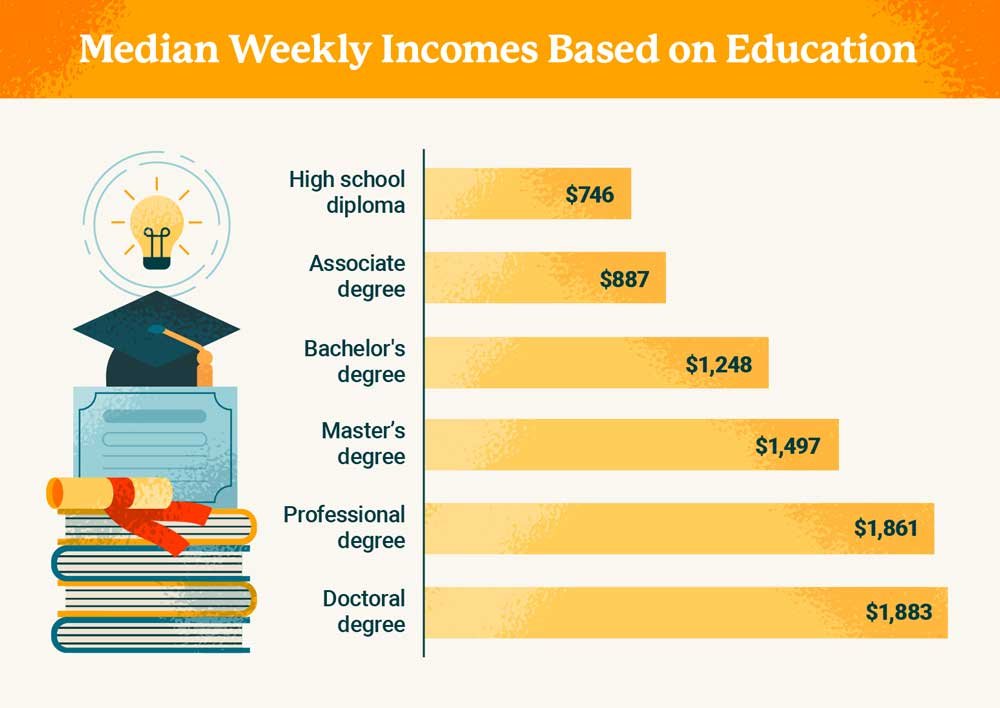We all hear about CEOs, editors-in-chief, company presidents, and other higher-ups in the business world. For those of us pining to get ahead in the workplace, it can be hard to know where to start so we can achieve success. Luckily, there’s a surefire way to get started on the path to success: adequate career planning.
As you begin your occupational journey, it’s essential to stay a few steps ahead. Meaning, it’s time to start planning all things career: aspirations, opportunities, and anything revolving around your job. No matter where you are in the world (or in your career), planning is a fantastic way to help advance your career. After all, there are so many real benefits of career planning that will help you thrive in the workforce, so time really is of the essence. From networking opportunities to salary raises, planning your career can open the door to so many amazing things in the professional world. And, in turn, will only benefit you personally and professionally.
While success doesn’t come overnight, it can come a bit sooner with careful and purposeful planning. With that being said, here are some of the reasons why career planning is essential to career advancement, along with a few tips as to how to get started today.
Networking success
In any career, networking is one of the most important steps to take when it comes to succeeding professionally. That’s why it’s extremely important to dedicate adequate time and resources to boost your networking. Whether it’s re-doing your LinkedIn profile or taking time to attend a networking mixer, planning to the network is one of the best ways to thrive professionally. After all, the more people you meet in the professional world, the more connections you’ll have when it comes to advancing your career (think recommendations, references, connections with prospective companies).
To that same degree, it’s also wise to brush up on your networking skills in a more social way. Researching and practising proper interviewing techniques and career etiquette will help you make a great impression on coworkers, present employers, or prospective employers in your field.
New opportunities
As you navigate the workforce, you may be surprised by all of the amazing opportunities that can arise. For this reason, it’s important to research and plan for new opportunities as they come your way, so you’ll be able to fully take advantage of them. Whether that’s a company-sponsored class, a cool business trip, or even access to a special project, the opportunities you may get in the workforce will only contribute to your professional development.
As you plan for your career, think about what kind of opportunities you’d like to explore. Do you have any goals that a specific company can help you achieve? Researching prospective companies to learn more about the benefits and employee services they offer is a great way to keep both you, and your career, on track. After some time, you may find that your opportunities may get bigger or more exciting, so dream big professionally! Writing down your career goals in terms of opportunities isn’t just a way to organize your life in a professional sense, but it can also act as a type of manifestation in the long run.
Higher salaries
Money isn’t everything. But if you’re looking to live a comfortable life with financial flexibility, monetary success can be extremely important. One of the main ways you can ensure a steady rise in salary is to get some sort of education. As you plan your professional career, it may be smart to research educational programs that can aid in your eventual success. Whether that’s receiving a specific certification or degree, allotting the resources to obtain an education should be a top priority.
Depending on your region, education standards can differ in the professional world. In the United States, having a bachelor’s degree is considered the standard, with a master’s degree being the thing that sets you over the edge. Meanwhile, in Europe, master’s degrees are considered commonplace and are set as the career standard. When planning your career, look into the educational standard of your country and decide if you need that extra bit of education to set you over the edge.
Getting proper education can be expensive, but it can be extremely effective in the long run. In fact, as shown in the graph below, there is a direct relationship between receiving higher education and receiving a higher salary. With education as a possible financial hurdle, start to plan on financing this part of your career journey.
Where do I start?
The professional world can be intimidating and, at times, hard to navigate. Luckily, career planning isn’t something that’s time-consuming or difficult to complete. Doing something as simple as outlining your goals on a piece of paper can be the first step to career greatness! If you’re not sure where to start, here are some key tips for career planning, along with an infographic you can look back on to continue your career planning journey!
- Write down your career goals in a journal or on a piece of paper to manifest and plan in a tangible form (and, you can look back on this for motivation!).
- Research educational programs that can help you professionally: whether that’s college, obtaining a GED, or mastering a specific certification
- Look into mentorship programs in your field to get a better feel of how to succeed from others
Regardless of where you are (or where you want to go), it’s never too late to begin planning your career. By taking the time to carefully and purposefully plan your future, you’ll be setting yourself up for career advancement and success!






